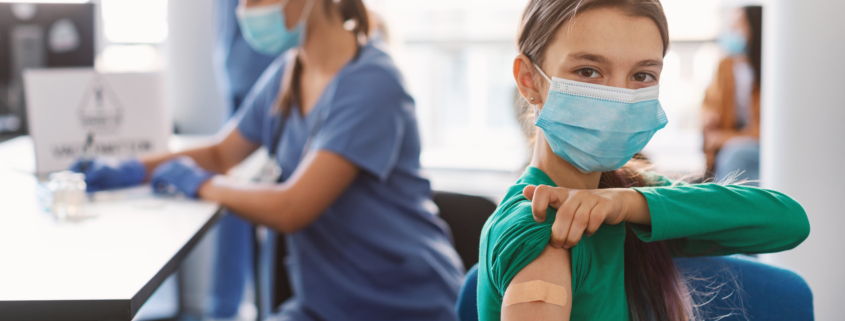NEWS: COVID Vaccines for Children Age 5 – 11 at NOAH
The Pfizer COVID-19 vaccine has been approved for use in children ages 5 to 11. NOAH has the vaccine available to begin scheduling COVID vaccines for children and is kicking this off with a vaccine event on Saturday, Nov. 20 from 8 a.m. to 12 p.m. at NOAH Palomino Health Center.
The approval came after the Pfizer-BioNTech vaccine was studied in approximately 3,100 children. The study shows the vaccine to be 90.7% effective in preventing COVID-19 in children 5 through 11 and there were no serious side effects found during the study.
While the same vaccine, the dosage children 5 to 11 will receive is 1/3 the dose those 12 and older receive. The second dose of the vaccine will be 21 days after the first dose. NOAH will schedule the second dose appointment when patients schedule the first dose for their child.
More Questions About COVID Vaccines for Children?
NOAH has put together some of the most common questions about COVID vaccines for children.
Schedule An Appointment
Parents or guardians of patients ages 5 to 11 can request a vaccine appointment at NOAH. The first vaccine opportunity is:
- Date: 11/20
- Time: 8 a.m. – 12 p.m.
- Location: NOAH Palomino Health Center, 16251 N. Cave Creek Rd., Phoenix 85032
COVID-19 vaccines are free, and no insurance is required. For individuals under 18, parental consent is required. ID is required for parent or guardian and can include any government-issued ID.
If you have questions about COVID-19 or the vaccines, NOAH has answers here, or you can make an appointment to talk to your healthcare provider.





